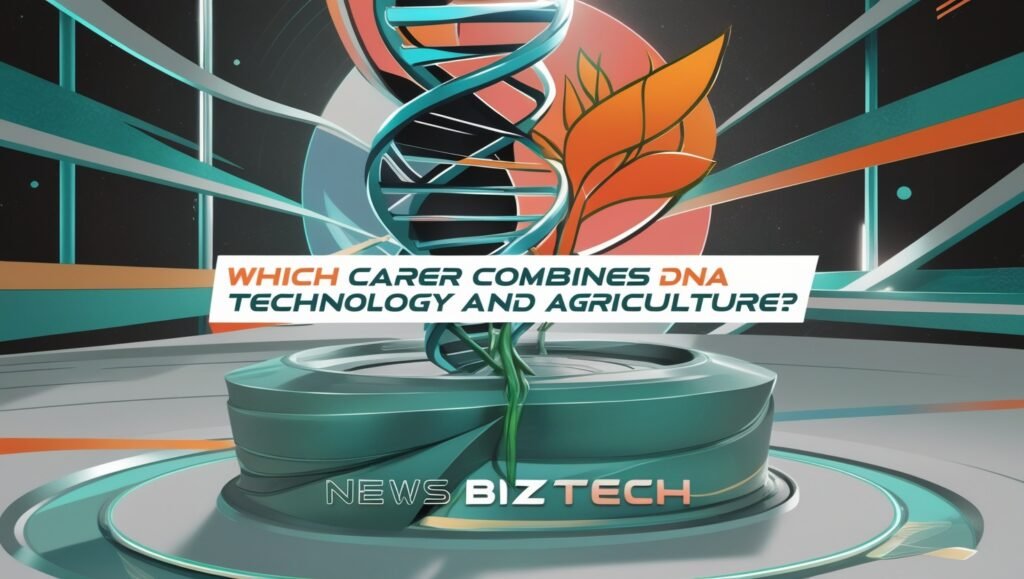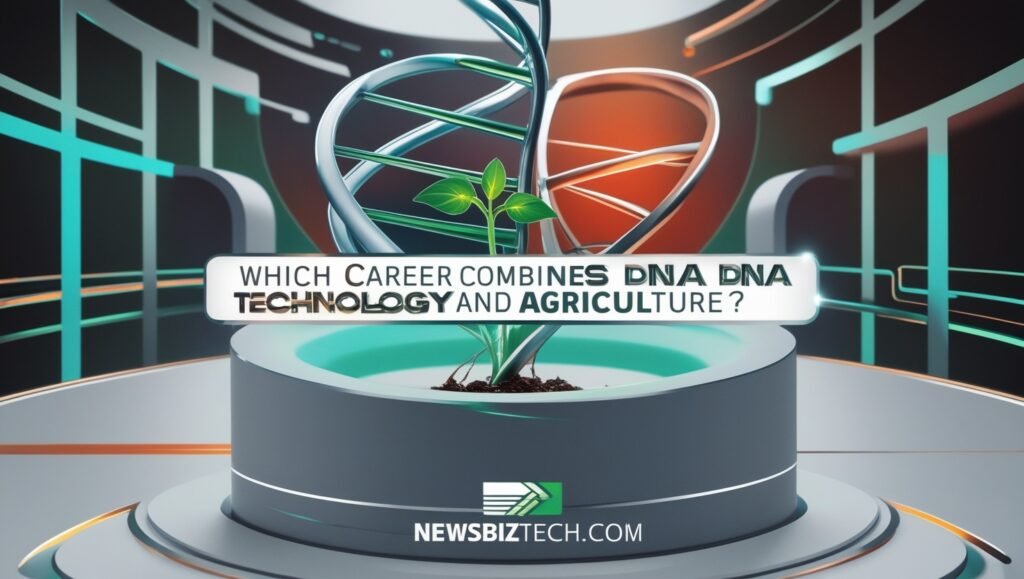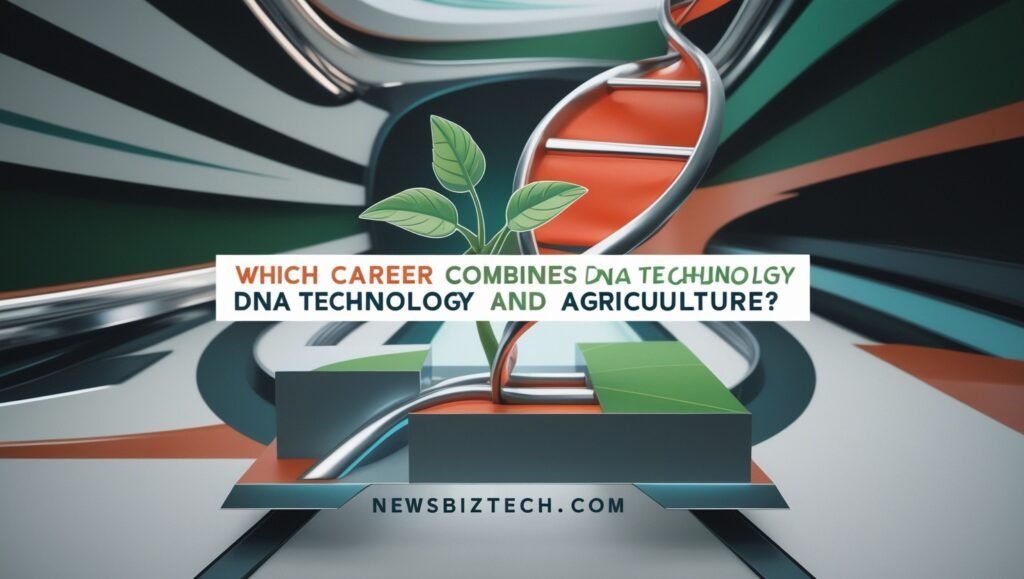Which career combines dna technology and agriculture? The increased demand for sustainable and resilient agriculture globally has led to the rapid expansion of careers involving DNA technology and agriculture. DNA technology in agriculture addresses issues ranging from food security to resilience during climate change and sustainable farm practices. Careers in agricultural genomics, biotechnology, and bioinformatics use genetic technology to develop crops with increased productivity, improved resilience, and nutritional values. Let’s explore the careers that connect DNA technology with agri
Key Takeaways
- Agricultural genomics and biotechnology careers are on the rise due to the growing need for sustainable, resilient crops and food security.
- Geneticists in agriculture apply DNA technology to enhance crop yields and develop pest-resistant varieties, contributing to a more sustainable food supply.
- Plant breeders use DNA technology for selective breeding, aiming to strengthen crop resistance to diseases and environmental stressors.
- Agricultural bioinformaticians analyze genetic data to drive precise crop improvements and resource efficiency.
- Global demand for sustainable agriculture is increasing and is expected to boost career opportunities in agricultural DNA technology.
culture, along with their roles, required skills, and the practical impact of the profession in real life as discussed in the article.
What Career Links DNA Technology and Agriculture?
The key careers which combine DNA technology and agriculture are as follows:
- Agricultural Geneticist
- Plant Breeder
- Agricultural Biotechnologist
- Bioinformatics Specialist in Agriculture
- Crop Scientist
Each role applies DNA technology for increased agricultural productivity and more resilience to climate change as well as food security. These careers involve application genomics, genetic engineering, and biotechnology to devise novel agricultural solutions.
Agricultural Geneticist: Using DNA for Crop Development

Role and Responsibilities
An agricultural geneticist is someone who uses DNA technology in order to analyze and improve plant and animal genetics. He works on finding the desirable traits, like drought resistance or pest tolerance, that enhance crop productivity and resilience.
| Skills Needed | Key Responsibilities |
|---|---|
| Genetics and Genomics | Identifying and isolating desirable traits |
| Laboratory Analysis | Conducting DNA analysis and gene editing |
| Data Analysis | Interpreting genetic data for crop improvement |
Demand for Agricultural Geneticists
Which career combines dna technology and agriculture? The demand for agricultural geneticists is rising across the globe as agriculture continues to face challenges such as climate change and food scarcity. The U.S. Bureau of Labor Statistics shows that the demand for agricultural scientists, which includes geneticists, will increase by 7% over the next ten years due to sustainable food production solutions.
Also Learn More: which career combines dna technology and agriculture?
Agricultural Geneticist: Using DNA for Crop Development
Role and Responsibilities
Plant breeders use DNA technology to improve crop varieties. They have produced crops that are better in terms of nutrition, strength, and productivity through selective breeding and genetic modification. They can identify genes responsible for size, yield, resistance to pests and diseases using DNA sequencing.
| Skills Needed | Key Responsibilities |
|---|---|
| Genetics | Selectively breeding for improved crop traits |
| Laboratory Techniques | Conducting DNA sequencing and gene analysis |
| Research and Development | Collaborating with agricultural scientists on crop trials |
Importance of Selective Breeding in Agriculture
In some ways, selective breeding greatly improved crops’ productivity. For instance, the variety of modern wheat is meant to grow 40% more grain per hectare than some of the types produced earlier in the 20th century. DNA technology used significantly in selective breeding is quite responsible for these improvements in crop yields.
Example: Disease-Resistant Crops
Genetic engineering has been applied in the production of plants, mainly in developing disease-resistant crops. Such crops are the blight-resistant potatoes and rust-resistant wheat. These improved crops minimize crop losses, thus ensuring stable food supply and dependency on pesticides.
Agricultural Biotechnologist: Innovating through genetic engineering

Role and Responsibilities
Agricultural biotechnologists use genetic engineering to produce transgenic crops with enhanced characteristics. In this process, they have been inserting genes directly into plants to endow them with advantages such as herbicide resistance or nutritional value.
| Skills Needed | Key Responsibilities |
|---|---|
| Genetic Engineering | Modifying crop genomes for desired traits |
| Laboratory Skills | Conducting genetic engineering experiments |
| Project Management | Overseeing crop development projects and safety protocols |
Actual Applications of Genetic Engineering in Agriculture
DNA technology has also produced GMOs in Bt cotton and Golden Rice. Bt cotton is engineered to resist the infestation of pests while also reducing pesticide use, an activity that cuts by as much as 80% and reduces environmental harm as well.
Also Learn More: which career combines dna technology and agriculture?
Agricultural Bioinformatician: Genetic Data Analysis in Precision Agriculture
Role and Responsibilities
Bioinformaticians in agriculture apply computational methods to analyze genetic data and improve crop management practices. They use DNA sequencing data to identify the best planting strategies, indicators of soil health, and patterns of crop diseases.
| Skills Needed | Key Responsibilities |
|---|---|
| Bioinformatics | Analyzing and interpreting genetic datasets |
| Data Science | Using data analysis for crop health recommendations |
| Programming | Developing tools to manage and interpret genetic data |
Precision Agriculture and Its Impact on Efficiency
Precision agriculture increases crop productivity by 20-30% while minimizing resource use. Bioinformaticians help farmers make decisions based on data, maximizing inputs such as water and fertilizer to enhance crop performance.
Crop Scientist: Linking Genetics to Environmental Science
Job and Duty
Crop scientists find ways to improve crop productivity as a function of genetic associations with environmental factors. It identifies how genes are expressed across weather patterns and other kinds of environmental stressors by using such knowledge to strengthen crops.
| Skills Needed | Key Responsibilities |
|---|---|
| Environmental Science | Studying crop-environment interactions |
| Genetics and Genomics | Analyzing plant DNA under varying conditions |
| Field Research | Conducting crop trials in diverse environments |
Crop Science Builds Climate Resilience
Which career combines dna technology and agriculture? Crop scientists are the need of crop development and agriculture because climate change persists. An example is maize varieties that have been drought tolerant and developed through DNA technology. They can thus survive even in water-scarce environments, preventing losses of crops.
FAQs
What career combines DNA technology and agriculture?
Which career combines dna technology and agriculture? Other careers include agricultural geneticist, plant breeder, agricultural biotechnologist, bioinformatician, and crop scientist. They each apply DNA technology in efforts to improve crop quality, resilience, and productivity.
How does DNA technology contribute to agriculture?
Through DNA technology, scientists are capable of identifying and enhancing the expression of traits in crops for increased yields, resistance to pests, and improved resistance to climate. It thereby supports food security and sustainable farming.
Is genetic engineering safe for crops?
Genetic engineering is strictly regulated due to crop safety issues. Research has shown GMOs to be safe as traditional crops if controlled and managed properly.
How Do I Become an Agricultural Genetics Specialist?
Most careers require a bachelor’s degree in genetics, biotechnology, or agricultural science, advanced research roles often requiring at least a master’s and even a Ph.D. qualification, especially in the field.
Why is bioinformatics necessary for agriculture?
Bioinformatics enables massive analysis of genetic datasets, and it provides decision support based on accurate data to make agricultural production more efficient and sustainable.
What does crop science do for climate change?
Crop scientists develop varieties that are tolerant to stresses induced by environment through research into the genetics of stress response. In this way, crop scientists counteract and mitigate the effects of climate change on agriculture.
Conclusion
Which career combines dna technology and agriculture? Integration of DNA technology with agriculture gives an imperative push toward more enhanced sustainability in farming, guarantee food security, and address issues on climate change. Agricultural geneticists, plant breeders, biotechnologists, bioinformaticians, and crop scientists work uniquely in these areas because they use DNA technology for crop resilience, productivity, and environmental sustainability. With an ever-increasing global demand for more sustainable food sources, there will be a high demand in these professions, thus making viable and impactful career choices to those interested in the genetic-agricultural interface.

